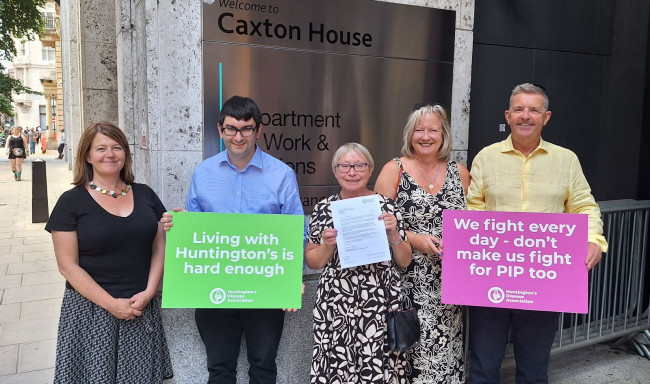A new survey reveals 62% of UK adults, equivalent of 10 million unpaid carers have no choice about taking on an unpaid caring role, latest research reveals
A new report by Carers UK shows millions of the UK's unpaid carers looking after disabled, older or ill relatives or friends are faced with no choice about taking on an unpaid caring role due to a lack of alternative care options, according to analysis of YouGov polling data published today to mark the start of Carers Week 2024.
Responding to a YouGov Omnibus poll of nearly 6,500 members of the public, 62% of current and former unpaid carers said they had no choice - the equivalent to 10 million adult unpaid carers.* By contrast, 29% of current and former unpaid carers said that other care options were available, but they chose to undertake the unpaid carer role. The research also suggested that the situation may be getting worse with those currently providing unpaid care more likely than former unpaid carers to say they had no choice in taking on a caring role (66% compared to 59%), due to a lack of available care options.
For many, performing the role with little support is taking a heavy toll. Whilst caring can be rewarding in many ways, those who responded to the survey found the impact of providing unpaid care was more negative than positive, with the biggest negative effect being on those current and former unpaid carers who said they had no choice about caring saying it had a ‘slightly or ‘very' negative impact on the following:
- 70% on their mental health
- 60% on their physical health
- 56% on their job and ability to work
- 54% on their finances and savings
- 43% on their relationships
The report also found that women were more likely than men to say unpaid caring had a ‘very' negative impact on mental health (27% compared with 19%) and on their job and ability to work (22% compared with 16%).
Those aged 45 to 54 were most likely to have no choice when taking on an unpaid caring role (70%) and were most likely to say that unpaid caring has had a ‘very' or ‘slightly' negative impact on their finances and savings (56%), job and ability to work (64%) and pensions (30%), compared to other age groups.**
The symptoms of Huntington's Disease usually start between the ages of 30 to 50. Those aged 45 to 54 are often the carers for people with Huntington's disease. The survey found by far the biggest negative impact has been on mental health:
- 63% of current and former unpaid carers saying that caring had a negative impact on their mental health
- 24% saying it had a ‘very negative’ impact.
An estimated 10.1m current and former unpaid carers in the UK experienced a negative impact on their mental health as a result of caring.
Cath Stanley, Chief Executive of the Huntington's Disease Association, said
We welcome this research from Carers UK. Being a carer can be exhausting and have a significant impact on mental health. People caring for a loved one with Huntington's disease tell us that the lack of support makes a challenging situation even more difficult. We urge the next government to take action to improve support for unpaid carers, including for mental health. There also needs to be better access to NHS mental health services for people with Huntington’s disease. Too often, people are denied the help they need because of their diagnosis. We are calling for mental health services to offer support based on need and not to exclude someone because they have a neurological condition.
Despite their huge contribution, far too many unpaid carers do not feel supported in their role amidst a widespread lack of support from health and social care services. It is estimated that unpaid carers save the economy an incredible £162 billion a year – the equivalent of a second NHS. Yet, many unpaid carers feel their role is forgotten and invisible.
Clare Daley is a carer for her husband, who has Huntington's disease,
"Even on the most stressful of days, I try to remain positive but that does drain you as a person. You go from being a wife with plans to a carer overnight and your life is affected massively. He [Mr D] can no longer cook, make a hot drink, do his buttons, belt or zip-up, tie shoelaces, get dressed, shave, and on the worst days, I do all his personal care. The constant repetitive questions can make you want to explode but you have to try to remember that anyone living with this condition can’t help it. I try to provide as many trigger solutions as possible, endless lists, notes, reassurance, but I get zero time for myself."
An additional YouGov Political Omnibus poll of over 4,200 members of the public showed widespread backing for more support to be given to unpaid carers. 73% said there should be more government support from the next Government.
Carers Week is taking place this week from 10 – 16 June. It is a UK-wide awareness campaign seeking to increase visibility for carers with decision makers, services, employers, communities, and businesses. This year's theme ‘Putting carers on the map' aims to bring much-needed recognition to unpaid carers that they feel they need. Keep an eye out on our Social Media this week as we share stories from carers.




